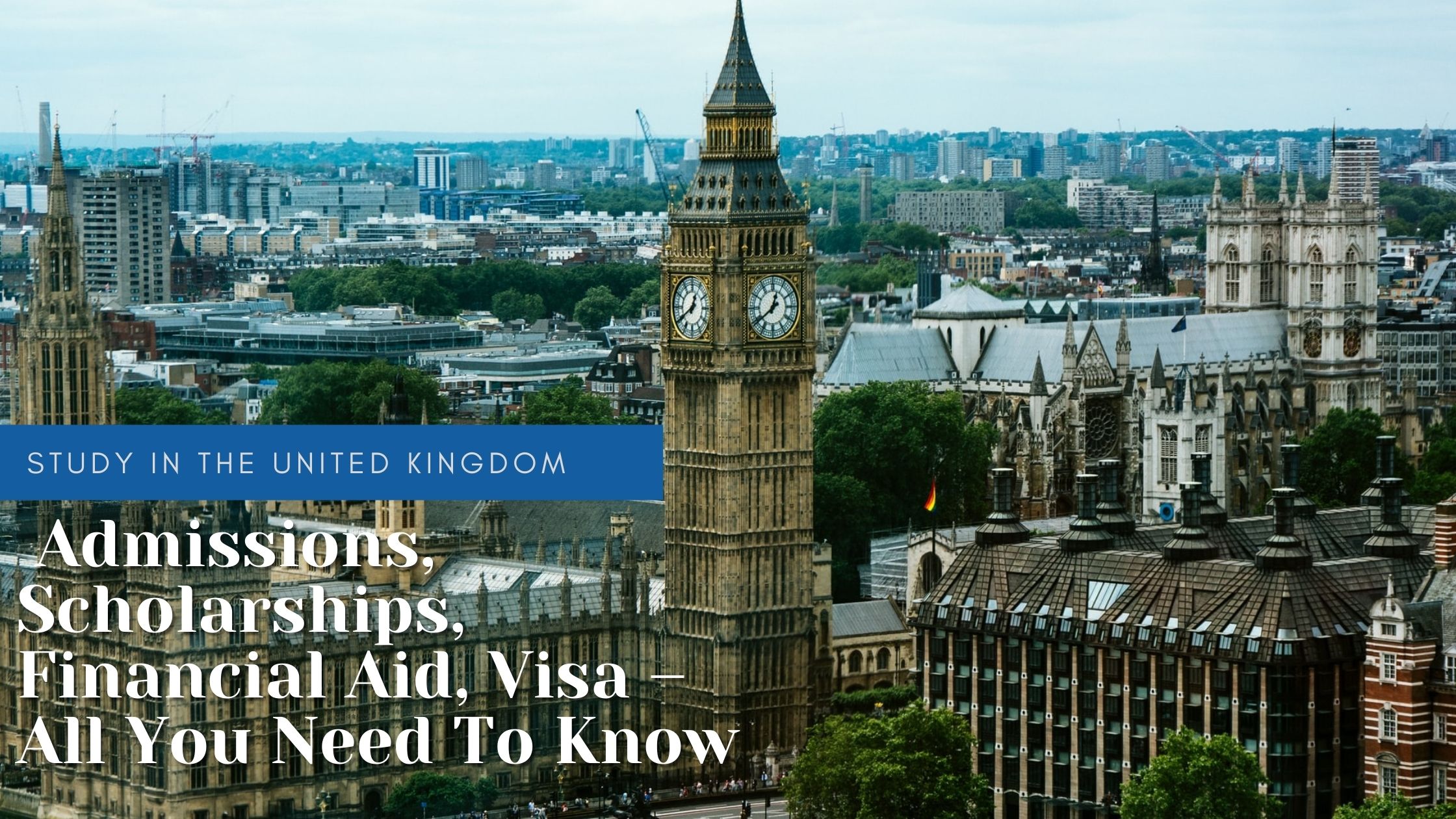Studying in the UK is an exciting opportunity for students from all over the world. With a reputation for excellence in education, UK universities are some of the most sought-after institutions in the world.
However, relocating to study in the UK can also be challenging, especially for international students who may not be familiar with the UK’s culture, education system, and lifestyle. This blog post aims to provide a comprehensive outline of the things students should put in place when relocating to study in the UK.
Relocating to the UK to study can be an overwhelming experience. There are many factors to consider, such as visa requirements, accommodation, finances, healthcare, and culture shock. It is essential to plan and prepare for these factors to ensure a smooth transition and successful study experience in the UK.
Benefits of Relocating to The UK to Study
Studying in the UK has numerous benefits, such as:
- World-renowned education: The UK is home to some of the best universities in the world, offering a wide range of courses and qualifications.
- Career opportunities: Studying in the UK can open up many career opportunities. UK universities have strong links with employers, making it easier for students to find work after graduation.
- Cultural exposure: The UK is a diverse country with a rich cultural heritage. Studying in the UK can expose students to new cultures and experiences, broadening their horizons and enhancing their personal growth.
- Language skills: English is the language of instruction in the UK, making it an ideal place for international students to improve their English language skills.
- Research opportunities: UK universities are known for their research excellence and offer students many opportunities to conduct research in their chosen fields.
- International community: The UK is home to a vibrant international community, with students from all over the world studying together. This provides students with the opportunity to learn from different perspectives and make lifelong connections.
- Travel opportunities: Studying in the UK provides students with the opportunity to travel and explore different parts of the country, as well as other parts of Europe.
- Support services: UK universities offer a wide range of support services to students, such as academic support, career advice, and personal support. This ensures that students have access to the help they need to succeed in their studies.
- Innovation and entrepreneurship: The UK is a hub for innovation and entrepreneurship, with many successful start-ups and businesses. Studying in the UK can provide students with the skills and knowledge to become successful entrepreneurs.
In conclusion, relocating to the UK to study is an excellent opportunity for students who want to gain world-class education, exposure to different cultures, and enhance their career prospects. In the following sections, we will discuss the things students should put in place when relocating to study in the UK.
Visa Requirements
One of the most crucial things to consider when relocating to study in the UK is the visa requirements. International students must obtain a student visa to study in the UK. The UK government offers several types of visas for students, each with its requirements.
Types of Student Visas:
- Tier 4 (General) Student Visa: This is the most common type of visa for international students studying at a UK university. To obtain a Tier 4 visa, students must have a confirmed place at a UK university, demonstrate their ability to speak and understand English, and have enough money to support themselves during their studies.
- Short-term Study Visa: This visa is for students who are studying a short course in the UK, such as a language course or a summer school program. The visa is valid for up to six months and cannot be extended.
- Tier 4 (Child) Student Visa: This visa is for students who are under 18 years old and want to study in the UK. To obtain this visa, students must have a confirmed place at a UK school and have written consent from their parents or legal guardian.
Requirements for each type of visa:
Tier 4 (General) Student Visa:
- A confirmed place at a UK university
- Proof of English language proficiency
- Sufficient funds to cover tuition fees and living expenses
- A valid passport or travel document
- TB test certificate (if applicable)
- Police clearance certificate (if applicable)
Short-term Study Visa:
- A confirmed place on a short course in the UK
- Proof of funds to cover course fees and living expenses
- A valid passport or travel document
- TB test certificate (if applicable)
- Police clearance certificate (if applicable)
Tier 4 (Child) Student Visa:
- A confirmed place at a UK school
- Consent from a parent or legal guardian
- Proof of funds to cover course fees and living expenses
- A valid passport or travel document
- TB test certificate (if applicable)
- Police clearance certificate (if applicable)
Tips for obtaining a student visa:
- Apply early: It is essential to apply for a student visa as soon as possible to avoid any delays or complications.
- Provide all necessary documents: Make sure to provide all the necessary documents and information required for the visa application.
- Check the visa processing times: Check the visa processing times and plan accordingly.
- Seek advice: If you are unsure about any aspect of the visa application process, seek advice from your university or a qualified immigration advisor.
- Keep copies of all documents: Make sure to keep copies of all documents submitted with your visa application.
Obtaining a student visa is a crucial step in relocating to study in the UK. By understanding the different types of visas available, and their requirements, and following the tips provided, international students can increase their chances of obtaining a visa and beginning their study journey in the UK.
Accommodation
Another important factor to consider when relocating to study in the UK is accommodation. The UK offers a range of accommodation options for international students, including on-campus accommodation, privately rented accommodation, and homestays.
Types of Accommodation:
- On-Campus Accommodation: Many UK universities offer on-campus accommodation for students. This can include halls of residence, shared apartments, or self-contained flats. On-campus accommodation is often the most convenient option for international students as it is located close to the university and provides a supportive environment for students.
- Private Rented Accommodation: Private rented accommodation can include shared houses or flats, or self-contained apartments. This option provides more independence for students, but it requires more research and effort to find suitable accommodation.
- Homestays: Homestays involve living with a host family who provides accommodation and meals. This option can be a great way for international students to experience British culture and improve their English language skills.
Process of Finding and Securing Accommodation:
- Research: Research accommodation options available in the area where your university is located. Universities often have accommodation services that can provide information and advice.
- Plan ahead: Start looking for accommodation well in advance, ideally before you arrive in the UK.
- View the property: If possible, view the property before signing a contract. This will give you a chance to see the condition of the property and meet your potential housemates or landlord.
- Sign a contract: Once you have found suitable accommodation, sign a contract or tenancy agreement. Make sure you understand the terms and conditions before signing.
Tips for finding affordable and suitable accommodation:
- Set a budget: Set a budget for your accommodation and stick to it. Consider all costs, including rent, utilities, and transportation.
- Share with others: Sharing accommodation with other students can be a great way to save money and make friends.
- Check the location: Consider the location of the accommodation and its proximity to your university, shops, and public transportation.
- Look for student discounts: Some landlords or agencies offer student discounts on rent or fees.
- Ask for advice: Ask for advice from your university accommodation service or other students who have experience with finding accommodation in the area.
By understanding the types of accommodation available, the process of finding and securing accommodation, and following the tips provided, international students can find suitable and affordable accommodation during their studies in the UK.
Finances
Another crucial aspect to consider when relocating to study in the UK finances. International students need to manage their finances effectively to ensure they have enough money to cover their living expenses and tuition fees while studying in the UK.
Cost of Living in the UK and Managing Finances:
Would You Like To Apply For This Jobs/Sponsorship?
Enter Your Email Address HERE & You Will Receive a Notification About Your Application. If it shows "Subscribed" CLICK HERE to follow on Telegram for updatesThe cost of living in the UK can vary depending on the location and lifestyle. According to the UK Council for International Student Affairs (UKCISA), the average cost of living in the UK for international students is around £1,200 per month, excluding tuition fees. Students should plan and budget accordingly to manage their finances effectively.
Options for Funding Your Studies:
- Scholarships and Bursaries: Many universities offer scholarships and bursaries to international students to help cover tuition fees and living expenses.
- Government Loans: Some governments provide loans or financial assistance to their citizens studying abroad.
- Part-time Jobs: International students are allowed to work part-time in the UK while studying. Part-time jobs can provide extra income to cover living expenses.
Tips for Managing Your Finances While Studying in the UK:
- Budgeting: Create a budget to track your income and expenses. This will help you manage your finances effectively and avoid overspending.
- Savings: Try to save some money each month for unexpected expenses or emergencies.
- Part-time Jobs: Consider working part-time to earn extra income, but make sure it doesn’t interfere with your studies.
- Student Discounts: Take advantage of student discounts offered by shops, restaurants, and entertainment venues.
- Public Transportation: Use public transportation to save money on transportation costs.
- Cook at Home: Cooking at home is often cheaper than eating out. Learn to cook and prepare your meals to save money on food expenses.
By understanding the cost of living in the UK, the different options for funding your studies, and following the tips provided, international students can manage their finances effectively and make the most of their study abroad experience in the UK.
Healthcare
One important aspect that international students should consider when relocating to study in the UK is healthcare. The UK offers a comprehensive healthcare system, the National Health Service (NHS), which provides free or low-cost healthcare to UK residents, including international students.
Healthcare Options for International Students:
- NHS: International students who have paid the immigration health surcharge as part of their visa application are entitled to free NHS treatment, including doctor’s appointments, hospital treatment, and emergency care. Students should register with a local GP (General Practitioner) as soon as possible after arrival in the UK.
- Private Healthcare: International students can also choose to use private healthcare facilities, which provide faster access to treatment and more personalized care. However, private healthcare can be expensive, so students should consider this option carefully.
Tips for Staying Healthy While Studying in the UK:
- Register with a GP: Register with a local GP as soon as possible after arriving in the UK. This will ensure you have access to medical care when you need it.
- Stay Active: Staying active is important for maintaining good health. Join a sports club or gym, or take up running or cycling.
- Eat a Balanced Diet: Eating a balanced diet is important for staying healthy. Try to eat a variety of foods and limit your intake of processed foods and sugary drinks.
- Get Enough Sleep: Getting enough sleep is important for maintaining good health and academic performance. Aim for 7-8 hours of sleep per night.
- Manage Stress: Studying abroad can be stressful, so it’s important to find ways to manage stress. This can include taking breaks, practising mindfulness, or seeking support from university services.
By understanding the healthcare options available, registering with a local GP, and following the tips provided, international students can stay healthy and make the most of their study abroad experience in the UK.
Culture Shock
Culture shock is a term used to describe the feeling of disorientation, confusion, and anxiety that people experience when they encounter a new culture or environment. It can be caused by differences in language, customs, values, and social norms.
Cultural Differences between the UK and Other Countries:
The UK has a rich and diverse culture that may be different from the culture of other countries. Some of the cultural differences that international students may experience when studying in the UK include:
- Language: The English language may be different from the language spoken in your home country, which can make communication challenging.
- Food: British cuisine may be different from the food you are used to eating in your home country. It can take time to adjust to new tastes and flavours.
- Social Norms: Social norms in the UK may be different from those in your home country. For example, personal space, manners, and social etiquette may be different.
- Weather: The weather in the UK can be unpredictable and may be different from what you are used to in your home country.
Tips for Adjusting to a New Culture:
- Learn About the Culture: Research the culture and customs of the UK before arriving. This will help you understand and appreciate the cultural differences.
- Be Open-Minded: Be open-minded and respectful of the culture and customs of the UK. This will help you adapt to the new environment more easily.
- Get Involved: Join clubs and organizations on campus to meet new people and learn more about the culture.
- Seek Support: Universities in the UK offer support services to international students to help them adjust to the new culture. Take advantage of these services if you need help or advice.
- Stay Connected with Family and Friends: Staying in touch with family and friends in your home country can help you feel less isolated and homesick.
By understanding the concept of culture shock, learning about the cultural differences between the UK and other countries, and following the tips provided, international students can adjust to a new culture and make the most of their study abroad experience in the UK.
Conclusion
Relocating to study in the UK can be an exciting but challenging experience for international students. In this blog post, we have discussed several key factors that students should consider when planning to study in the UK, including visa requirements, accommodation, finances, healthcare, and culture shock.
To obtain a student visa, students should research the various types of visas available and ensure they meet the requirements for each type.
Finding suitable accommodation in the UK can be a challenging process, but students can use various resources to help them secure affordable and suitable accommodation. Managing finances is important, and students should consider the cost of living in the UK and explore funding options available to them.
The UK offers a comprehensive healthcare system, and international students can access free or low-cost healthcare through the National Health Service. Finally, we discussed the concept of culture shock and provided tips for adjusting to a new culture.







I need a scholarship help please
I need are scholership to lerning please help me to get this scholership please
I need a scholarship to learning please help me to get this scholarship please